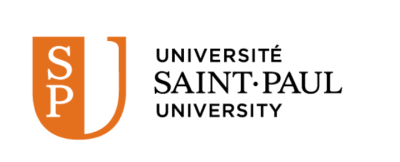
M.A. in Conflict Studies
Ottawa, Canada
DURATION
2 Years
LANGUAGES
English, French
PACE
Full time, Part time
APPLICATION DEADLINE
Request application deadline
EARLIEST START DATE
Request earliest startdate
TUITION FEES
CAD 8,302 *

STUDY FORMAT
On-Campus
* $8,302.32 per term, for full-time international students
Introduction
Saint Paul University offers an MA in Conflict Studies, which is conferred jointly by the Senates of Saint Paul University and the University of Ottawa. The focus of the program is on the ethnic and religious identity distinctions that characterize many deep-rooted conflicts. The program explores the meaning of and generates processes for reconciliation, healing, and structural change. It combines a social science orientation common to Conflict Studies programs with a philosophical, ethical, and theological orientation. The field of specialization is ethnic and religious dimensions of conflict in Canada.
Two levels of learning are distinguished:
Foundational Level: this level entails the intensive study of major themes in Conflict Studies. Graduate training is initiated in research skills and methodologies in preparation for the research project.
Advanced Level: this level of study concentrates on the development of specific dimensions of Conflict Studies. Research seminars meet to define the problem, purpose, scope, and methodology of the master’s research project.
Program Outcome
- Analysis: to explore the connections between conflict, violence, social justice, conflict resolution, and peacebuilding in human communities;
- Training: to develop the attitudes, knowledge, research, and skills necessary to analyze ethnic and religious conflicts so as to cultivate peace;
- Outcomes: to produce graduates who are competent: to analyze ethnic and religious conflicts in a multidisciplinary perspective and to devise and evaluate appropriate conflict resolution strategies.
Admissions
Curriculum
The MA program provides two options:
- Research Paper option: six compulsory courses; five optional courses; Research Paper (ECS6140).
- Thesis option: six compulsory courses; three optional courses; Thesis (ECS6999).
Compulsory Courses (18 units)
- Identity-Based Conflict (3u)
- Research Methods (3u)
- History of Conflict Resolution (3u)
- Design and Evaluation of Conflict Resolution Interventions (3u)
- Theories of Conflict (3u)
- Ethical Dimensions of Conflict (3u)
Optional Courses (15 or 9 units)
Students select five courses (Research Paper option) or three (Thesis option) from the list of optional courses.
- Trauma, Healing, And Reconciliation
- Genocide And Reconciliation
- Political Economy Of Conflict
- Contemporary Peacebuilding
- Mediation And Negotiation: Theory And Research
- Selected Topics In Conflict Studies
- The Adaptive Leader
- The Comprehensive Approach To Complex Operations
- Complexity Thinking For Integrative Peacebuilding
- Intercultural And Inter-Religious Engagement
- Peacebuilding, Identity-Based Conflict, And Reconciliation
- Religious Identities And Conflict
- Spirituality And Conflict
- Gender And Conflict
- Indigenous Cultures, Conflict, And Coexistence
- Research Internship
- Research Seminar
- Master Thesis
A maximum of two graduate courses (6 units) may be taken from other programs and universities with prior authorization from the director of the program.
Research
- Research Seminar (3u) (Research Paper option)
or
- Thèse de M.A. / MA Thesis (Thesis option)
For admission to the thesis option, a student admitted to the MA in Conflict Studies program must first obtain 9 units (through courses or through advanced standing), and then apply to the director of the School for permission to enroll in the thesis option. To do so, the student must find a suitable supervisor and submit a detailed topic and plan of research. The director will examine the application and inform the student of its decision.
If a student chooses the thesis option and the thesis uses a quantitative methodology, a course in quantitative methodology is required. If the thesis uses a qualitative methodology, one of the following is required: a course in qualitative methodology, participant observation, content analysis, or evaluation research.
